Deck 3: Nucleic Acid Structure and Function
Question
Question
Question
Question
Question
Question
Question
Question
Question
Question
Question
Question
Question
Question
Question
Question
Question

Unlock Deck
Sign up to unlock the cards in this deck!
Unlock Deck
Unlock Deck
1/17
Play
Full screen (f)
Deck 3: Nucleic Acid Structure and Function
1
Which of the following is a characteristic of Chargaff's rules?
A) A + T = C + G
B) A + G = C + T
C) A + G = C + U
D) all organisms have identical amounts of all four nucleotides
E) none of the above
A) A + T = C + G
B) A + G = C + T
C) A + G = C + U
D) all organisms have identical amounts of all four nucleotides
E) none of the above
A + G = C + T
2
A base found exclusively in DNA is _____ while _____ is found only in RNA.
A) adenine; cytosine
B) guanine; thymine
C) uracil; adenine
D) cytosine; guanine
E) thymine; uracil
A) adenine; cytosine
B) guanine; thymine
C) uracil; adenine
D) cytosine; guanine
E) thymine; uracil
thymine; uracil
3
Which of the following is correctly paired with its nucleoside?
A) adenine: adenylate
B) cytosine: cytidine diphosphate
C) guanine: guanosine
D) thymine: thymidylate
E) uridine: uridine triphosphate
A) adenine: adenylate
B) cytosine: cytidine diphosphate
C) guanine: guanosine
D) thymine: thymidylate
E) uridine: uridine triphosphate
guanine: guanosine
4
The coenzymes known as NAD+, FAD and coenzyme A all contain a derivative of _____.
A) adenosine
B) cytidine
C) guanosine
D) thymidine
E) uridine
A) adenosine
B) cytidine
C) guanosine
D) thymidine
E) uridine

Unlock Deck
Unlock for access to all 17 flashcards in this deck.
Unlock Deck
k this deck
5
The most common base pairs in DNA are _____ and _____.
A) A-T; A-G
B) G-C; C-A
C) T-A; A-U
D) C-G; T-A
E) G-U; A-T
A) A-T; A-G
B) G-C; C-A
C) T-A; A-U
D) C-G; T-A
E) G-U; A-T

Unlock Deck
Unlock for access to all 17 flashcards in this deck.
Unlock Deck
k this deck
6
Differences in structure between a DNA helix and an RNA helix can predominantly be attributed to the presence of _____ in RNA.
A) uracil
B) 2 hydroxyl group
hydroxyl group
C) 3 11ee7c0c_d269_9345_ae82_f77eec260ea4_TBW1044_11 hydroxyl group
D) smaller sizes of RNA molecules
E) none of the above
A) uracil
B) 2
 hydroxyl group
hydroxyl groupC) 3 11ee7c0c_d269_9345_ae82_f77eec260ea4_TBW1044_11 hydroxyl group
D) smaller sizes of RNA molecules
E) none of the above

Unlock Deck
Unlock for access to all 17 flashcards in this deck.
Unlock Deck
k this deck
7
Which of the following non-covalent interactions is the most important in maintaining the structure of the double helix?
A) phosphodiester bonds
B) hydrogen bonds
C) London dispersion forces
D) van der Waals interactions
E) ionic interactions
A) phosphodiester bonds
B) hydrogen bonds
C) London dispersion forces
D) van der Waals interactions
E) ionic interactions

Unlock Deck
Unlock for access to all 17 flashcards in this deck.
Unlock Deck
k this deck
8
What term describes the process of converting the information found in DNA into the sequence of a protein?
A) replication
B) transcription
C) translation
D) expression
E) none of the above
A) replication
B) transcription
C) translation
D) expression
E) none of the above

Unlock Deck
Unlock for access to all 17 flashcards in this deck.
Unlock Deck
k this deck
9
If instead of four different bases in DNA and RNA, there were six, what is the minimum size of a codon to encode the 20 amino acids commonly found in proteins?
A) 1
B) 2
C) 3
D) 4
E) cannot be determined
A) 1
B) 2
C) 3
D) 4
E) cannot be determined

Unlock Deck
Unlock for access to all 17 flashcards in this deck.
Unlock Deck
k this deck
10
Which of the following represents a DNA mutation in the template strand that would convert serine to cysteine?
A) 5 -GCT-3 11ee7c0c_d269_9345_ae82_f77eec260ea4_TBW1044_11 to 5 11ee7c0c_d269_9345_ae82_f77eec260ea4_TBW1044_11 -GCA-3 11ee7c0c_d269_9345_ae82_f77eec260ea4_TBW1044_11
-GCT-3 11ee7c0c_d269_9345_ae82_f77eec260ea4_TBW1044_11 to 5 11ee7c0c_d269_9345_ae82_f77eec260ea4_TBW1044_11 -GCA-3 11ee7c0c_d269_9345_ae82_f77eec260ea4_TBW1044_11
B) 5 11ee7c0c_d269_9345_ae82_f77eec260ea4_TBW1044_11 -AGC-3 11ee7c0c_d269_9345_ae82_f77eec260ea4_TBW1044_11 to 5 11ee7c0c_d269_9345_ae82_f77eec260ea4_TBW1044_11 -TGC-3 11ee7c0c_d269_9345_ae82_f77eec260ea4_TBW1044_11
C) 5 11ee7c0c_d269_9345_ae82_f77eec260ea4_TBW1044_11 -AGC-3 11ee7c0c_d269_9345_ae82_f77eec260ea4_TBW1044_11 to 5 11ee7c0c_d269_9345_ae82_f77eec260ea4_TBW1044_11 -UGC-3'
D) 5 11ee7c0c_d269_9345_ae82_f77eec260ea4_TBW1044_11 -AGU-3 11ee7c0c_d269_9345_ae82_f77eec260ea4_TBW1044_11 to 5 11ee7c0c_d269_9345_ae82_f77eec260ea4_TBW1044_11 -UGU-3 11ee7c0c_d269_9345_ae82_f77eec260ea4_TBW1044_11
E) 5 11ee7c0c_d269_9345_ae82_f77eec260ea4_TBW1044_11 -TCG-3 11ee7c0c_d269_9345_ae82_f77eec260ea4_TBW1044_11 to 5 11ee7c0c_d269_9345_ae82_f77eec260ea4_TBW1044_11 -TCC-3 11ee7c0c_d269_9345_ae82_f77eec260ea4_TBW1044_11
A) 5
 -GCT-3 11ee7c0c_d269_9345_ae82_f77eec260ea4_TBW1044_11 to 5 11ee7c0c_d269_9345_ae82_f77eec260ea4_TBW1044_11 -GCA-3 11ee7c0c_d269_9345_ae82_f77eec260ea4_TBW1044_11
-GCT-3 11ee7c0c_d269_9345_ae82_f77eec260ea4_TBW1044_11 to 5 11ee7c0c_d269_9345_ae82_f77eec260ea4_TBW1044_11 -GCA-3 11ee7c0c_d269_9345_ae82_f77eec260ea4_TBW1044_11 B) 5 11ee7c0c_d269_9345_ae82_f77eec260ea4_TBW1044_11 -AGC-3 11ee7c0c_d269_9345_ae82_f77eec260ea4_TBW1044_11 to 5 11ee7c0c_d269_9345_ae82_f77eec260ea4_TBW1044_11 -TGC-3 11ee7c0c_d269_9345_ae82_f77eec260ea4_TBW1044_11
C) 5 11ee7c0c_d269_9345_ae82_f77eec260ea4_TBW1044_11 -AGC-3 11ee7c0c_d269_9345_ae82_f77eec260ea4_TBW1044_11 to 5 11ee7c0c_d269_9345_ae82_f77eec260ea4_TBW1044_11 -UGC-3'
D) 5 11ee7c0c_d269_9345_ae82_f77eec260ea4_TBW1044_11 -AGU-3 11ee7c0c_d269_9345_ae82_f77eec260ea4_TBW1044_11 to 5 11ee7c0c_d269_9345_ae82_f77eec260ea4_TBW1044_11 -UGU-3 11ee7c0c_d269_9345_ae82_f77eec260ea4_TBW1044_11
E) 5 11ee7c0c_d269_9345_ae82_f77eec260ea4_TBW1044_11 -TCG-3 11ee7c0c_d269_9345_ae82_f77eec260ea4_TBW1044_11 to 5 11ee7c0c_d269_9345_ae82_f77eec260ea4_TBW1044_11 -TCC-3 11ee7c0c_d269_9345_ae82_f77eec260ea4_TBW1044_11

Unlock Deck
Unlock for access to all 17 flashcards in this deck.
Unlock Deck
k this deck
11
Bacteria and archaea typically have fewer than _____ genes while plants and animals typically have greater than _____ genes.
A) 200; 1,000
B) 500; 2,500
C) 1,000; 5,000
D) 5,000; 10,000
E) 10,000; 100,000
A) 200; 1,000
B) 500; 2,500
C) 1,000; 5,000
D) 5,000; 10,000
E) 10,000; 100,000

Unlock Deck
Unlock for access to all 17 flashcards in this deck.
Unlock Deck
k this deck
12
The presence of _____ approximately once in every 1000 base pairs is what makes each individual human genetically unique.
A) orphan genes
B) horizontal genes
C) homologous genes
D) transposable elements
E) single nucleotide polymorphisms
A) orphan genes
B) horizontal genes
C) homologous genes
D) transposable elements
E) single nucleotide polymorphisms

Unlock Deck
Unlock for access to all 17 flashcards in this deck.
Unlock Deck
k this deck
13
The link between a purine and ribose is made from the ___ of the purine ring to the ___ of the ribose.

Unlock Deck
Unlock for access to all 17 flashcards in this deck.
Unlock Deck
k this deck
14
Coenzyme A contains ___ and ___.

Unlock Deck
Unlock for access to all 17 flashcards in this deck.
Unlock Deck
k this deck
15
Nicotinamide adenine dinucleotide contains ___ and ___.

Unlock Deck
Unlock for access to all 17 flashcards in this deck.
Unlock Deck
k this deck
16
Which of the following bases pairs with guanine?
A)
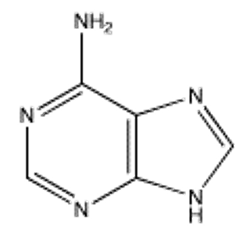
B)
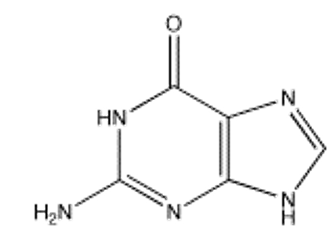
C)
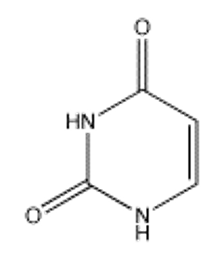
D)
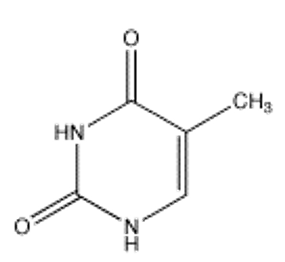
E)
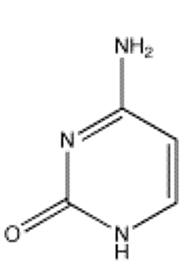
A)

B)

C)

D)

E)


Unlock Deck
Unlock for access to all 17 flashcards in this deck.
Unlock Deck
k this deck
17
Which of the following bases is not present in RNA?
A)
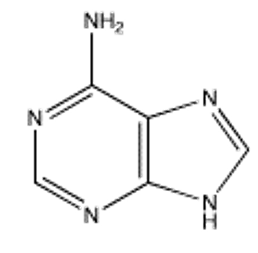
B)
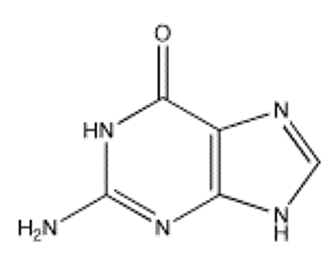
C)
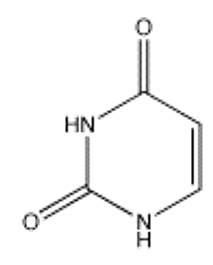
D)
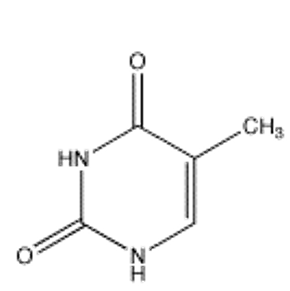
E)
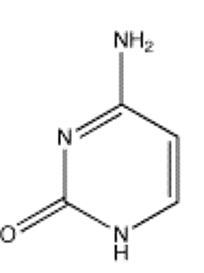
A)

B)

C)

D)

E)


Unlock Deck
Unlock for access to all 17 flashcards in this deck.
Unlock Deck
k this deck


